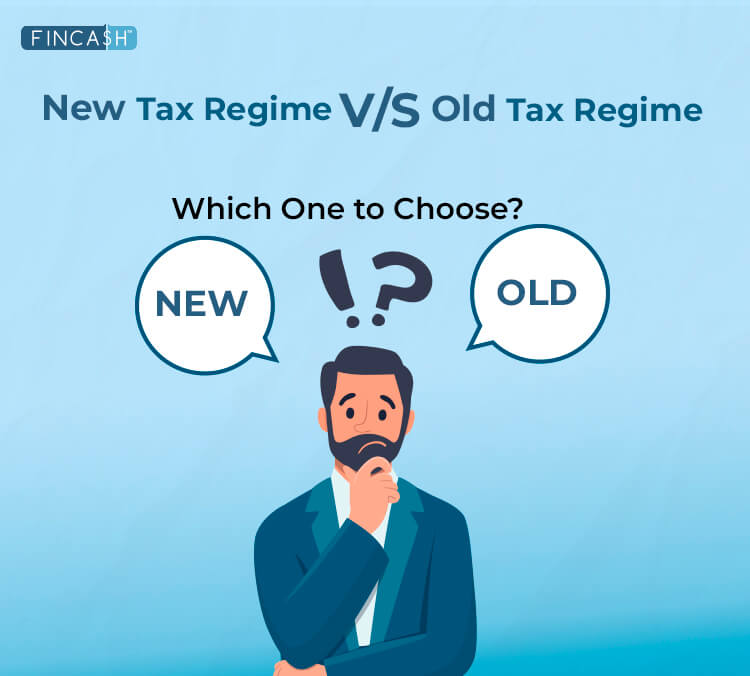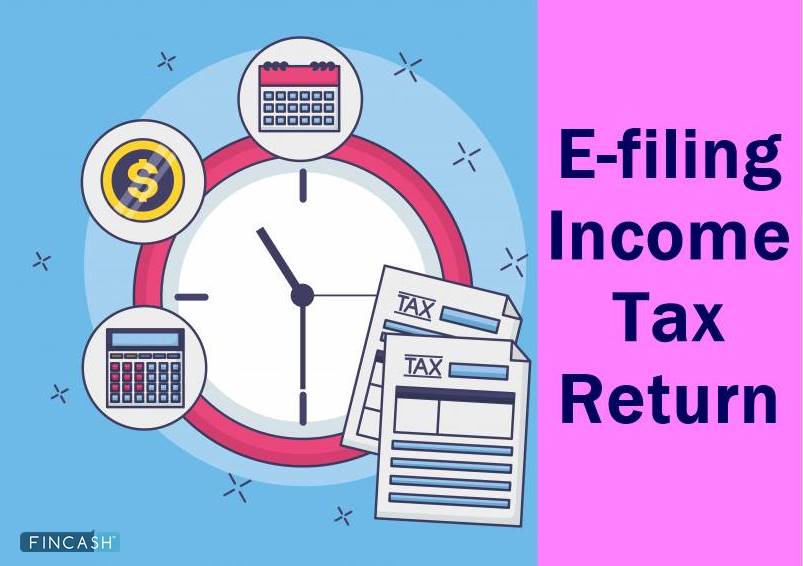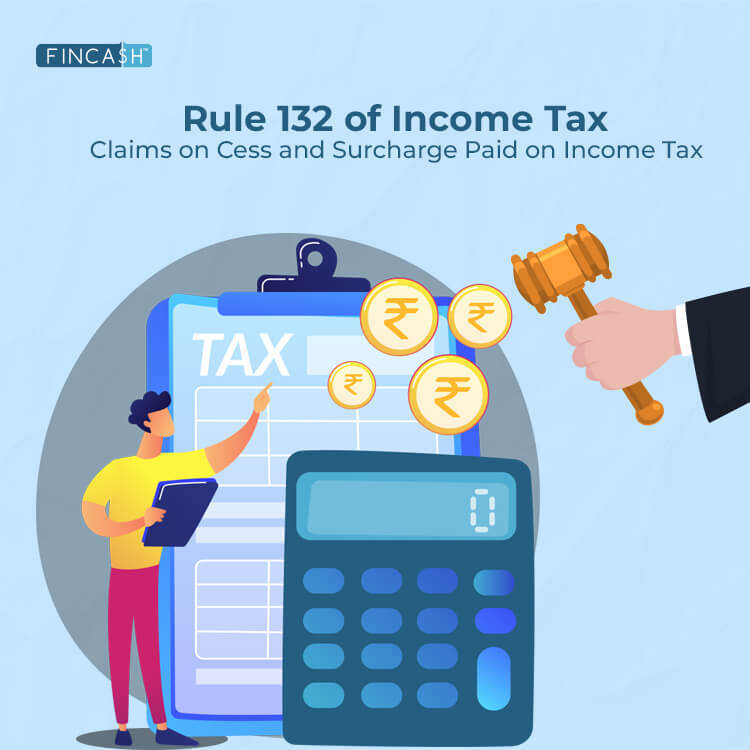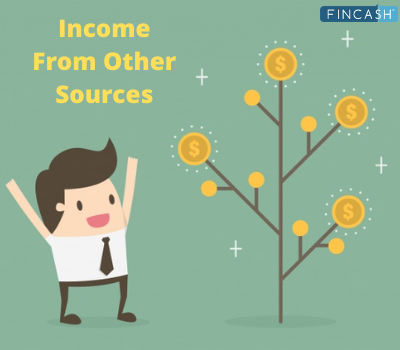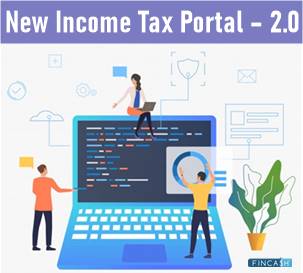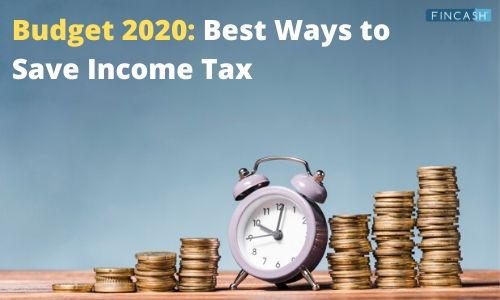
Table of Contents
- 1. Relief on Long Term Capital Gains
- 2. Crypto Tax
- 3. New TDS Rules on Sale of Immovable Property
- 4. Higher TDS for ITR Non-Filers
- 5. No Additional Deduction Under Sec 80EEA
- 6. Tax on EPF
- 7. Senior Citizens aged 75 years and above Exempted from Filing ITR
- 8. NPS Deduction to State Government Employees
- 9. KYC Updation
- 10. Relaxation in Receiving Annuity by Disabled Person
New Income Tax Rules from April 1, 2022
The new financial year is readily bringing a gamut of changes in the income tax rules and regulations. Considering the massive alterations, experts recommend staying prepared beforehand if you aren’t looking forward to being stuck in the financially challenged web.

Moreover, staying abreast with the latest changes can also help you plan out your savings and expenses accordingly. So, for those who are unfamiliar with the new provisions, this post covers some of the key tax factors that will be applicable from April 1, 2022.
1. Relief on Long Term Capital Gains
Earlier, individuals who were earning long term Capital gains from the transfer of assets (other than listed securities) had to pay a surcharge of 37% of the Income tax. However, from the new session, surcharges on these incomes will be now equal to the surcharge that is applicable to other capital income at 15%. Moreover, accordingly, marginal relief will be provided to individuals as well.
2. Crypto Tax
The Lok Sabha passed the Finance Bill 2022 that inserts a new section, called 115BBH. It offers the computation and the Tax Rate method for the income coming from the transfers of the Virtual Digital Asset (VDA). According to the new rules, income from all of the VDAs, including cryptos, will get taxed at 30%. This will be applicable in all circumstances, even if your Taxable Income is less than Rs. 2,50,000.
Furthermore, no deductions, other than the acquisition cost, will be made when computing the taxable amount. And then, there are no provisions for carrying forward or setting off the unclaimed losses. This simply means that the losses incurred from Dogecoin will not be set off against profits acquired from Bitcoin or other VDAs. Such high tax provisions might take off the interest from the crypto Market, which has been Offering high returns over the last few years.
3. New TDS Rules on Sale of Immovable Property
Until now, stamp duty was not taken into account while calculating the TDS on the sale of immovable property. But, as per the new TDS rules, the government has mandated TDS (tax deducted at source) of one per cent on the sale of non-agriculture immovable property of over Rs. 50 lakh. The TDS will be calculated on the lump sum amount paid by the buyer to the seller or the stamp duty, whichever is higher.
Talk to our investment specialist
4. Higher TDS for ITR Non-Filers
Higher TDS and TCS (tax collected at source) will be applicable in the FY 2022-23 for those who have missed filing their previous Income Tax Returns. However, it will not be applied if the source of income is salary and provident fund. Higher TDS will be deducted from interest income, dividend income etc. as specified under the Income-tax Act.
The decision is taken to widen the Tax Base and nudge taxpayers to furnish their tax returns.
5. No Additional Deduction Under Sec 80EEA
The Deduction under Section 80EEA is available only for houses purchased before March 31, 2022. So, if you are planning to buy a house in the next financial year do remember that the additional deduction of Rs. 1.5 lakh against the payment of interest on the Home Loan will not be provided. Section 80EEA is available for first time home buyers where the stamp duty value of the property does not exceed Rs. 45 lakhs.
An individual can claim a deduction of up to Rs. 3.5 using section 80EEA and Section 24 on the interest paid on a home loan taken for buying an affordable house. Individuals can continue to claim deductions under section 24 for a maximum up to Rs. 2 lakh.
6. Tax on EPF
From April 1, 2022, Provident Fund (PF) accounts will be divided into two parts - taxable and non-taxable accounts. The income earned in the current year gets taxed in the hands of the employee next year. So, the interest earned in your EPF account will get taxed in 2022-23, only if the contribution is above Rs. 2.5 lakh. Moreover, the tax will be levied only on the interest earned on the amount exceeding Rs. 2.5 lakh. The contribution amount does not become taxable.
7. Senior Citizens aged 75 years and above Exempted from Filing ITR
The exemption from filing income tax returns is available for senior citizens only if certain conditions are fulfilled. Further, a declaration has to be given by the senior citizen to the Bank.
8. NPS Deduction to State Government Employees
The State government employees will now be able to claim deduction under Section 80CCD(2) for NPS contribution by the employer up to 14% of their basic salary and dearness allowance. This will now be the same as the deduction available to central government employees.
9. KYC Updation
Individuals whose bank account is not KYC compliant will not be able to operate their bank account from April 1, 2022. Restrictions will be placed on cash deposits, cash withdrawals etc.
10. Relaxation in Receiving Annuity by Disabled Person
Under Section 80DD (a section offering a Tax Break for the care of a disabled person), the government has provided certain relaxation, that is if an individual buys a Life Insurance plan for a disabled person, then an individual can claim a deduction even if policy benefits (such as annuity payments) starts while the individual is still alive.
Until now, the deduction was allowed to the parent or guardian only if the lump-sum payment or annuity is available to the differently-abled person on the death of the parent or guardian.
All efforts have been made to ensure the information provided here is accurate. However, no guarantees are made regarding correctness of data. Please verify with scheme information document before making any investment.
